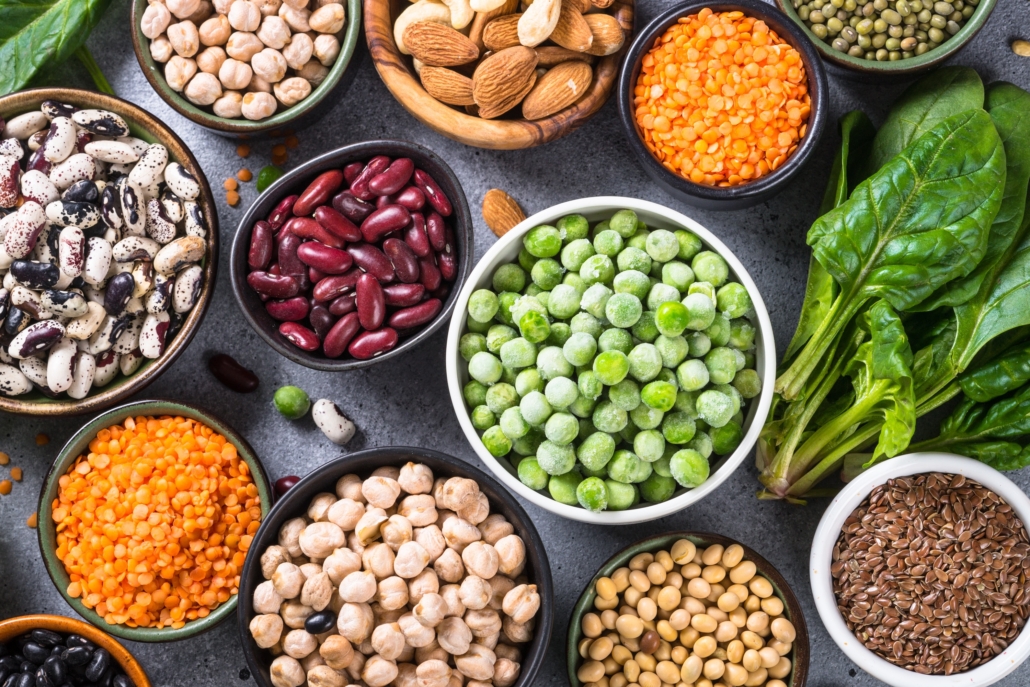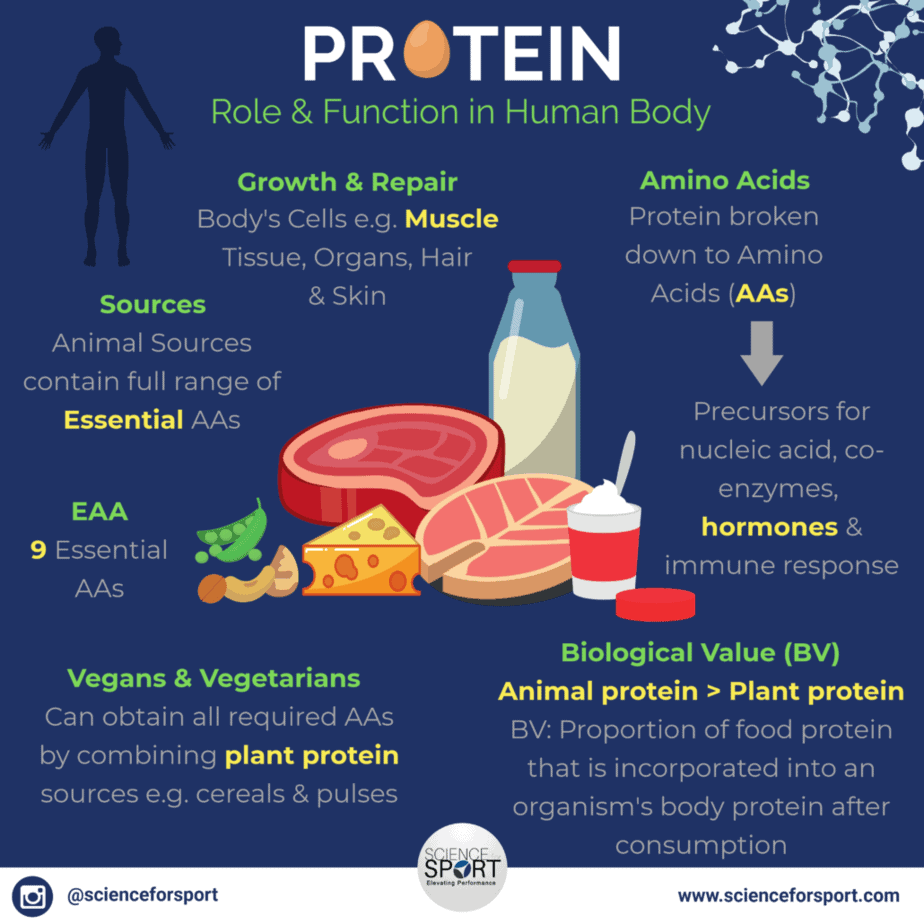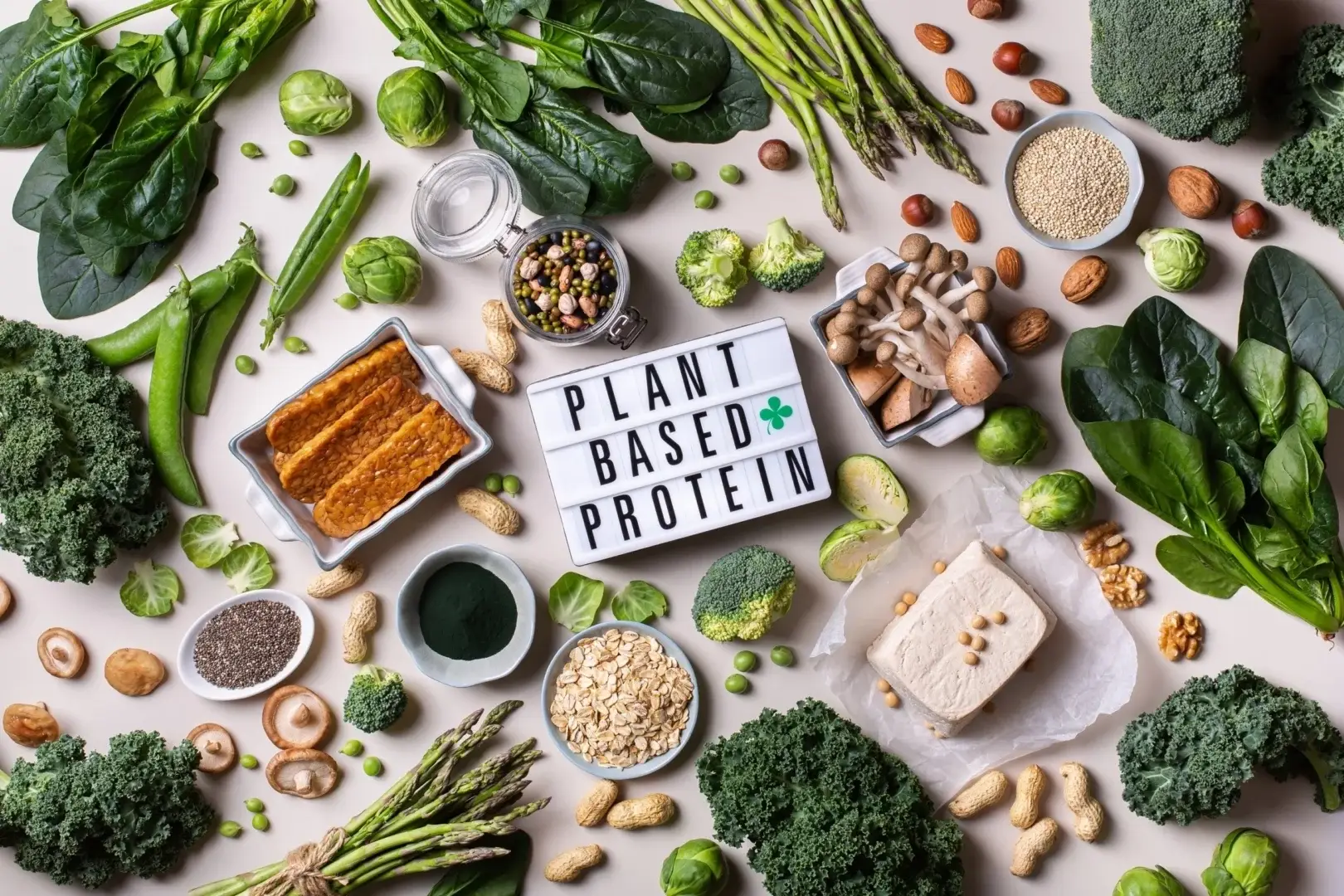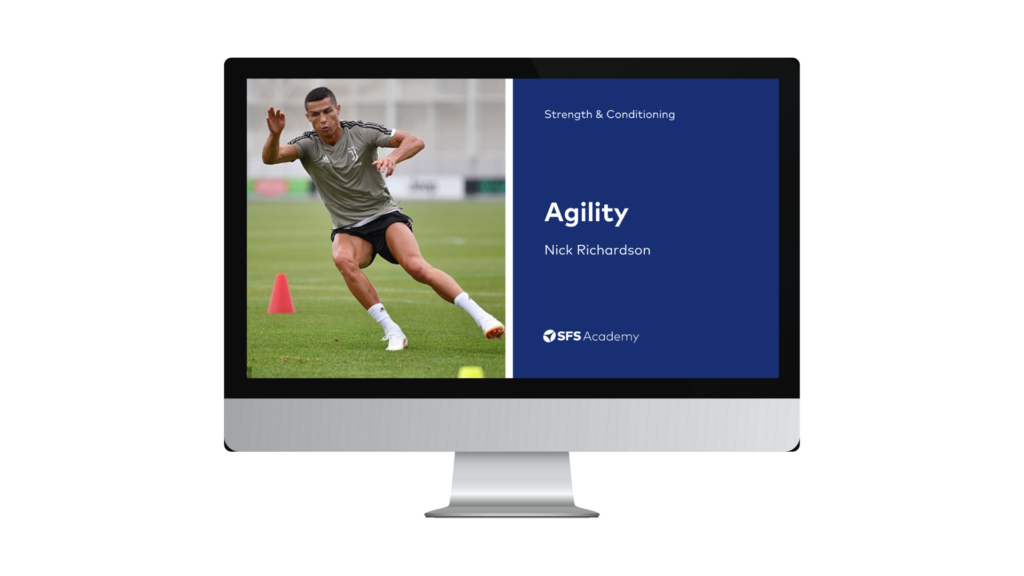Contents
- Plant based protein and performance
- Types of vegan or vegetarian diet patterns
- Protein quality: It’s not all about quantity
- The importance of protein portions
- Plant-based protein and sports performance
- Can plant-based protein help you gain muscle?
- Special considerations for plant-based athletes
- Sources of protein: Key takeaways
Plant based protein and performance
A couple years ago, I was recruiting firefighters to participate in a health and wellness program that included nutrition and fitness coaching. Although this population is labelled as ‘athletes’ due to their physically demanding jobs, they have high rates of obesity, cardiovascular disease, and musculoskeletal injuries.
During my presentation, they were a captive audience and nutrition questions came in like wildfire (do you see what I did there?) – they wanted to know what the best diet was for losing weight and increasing muscle.
Around this same time, a popular documentary was released, bringing attention to a vegan diet as a cure-all eating pattern. Most questions were in relation to this very topic. Is a vegan diet the best for optimal health? Do vegan diets reduce chronic disease and obesity? Can athletes still maintain muscle gains following a vegan diet?
A handful of firefighters even began eating a vegan diet and the group wanted to know if it was the perfect option. According to this documentary, meat was out and plants were in, and firefighters and the public suddenly had a thirst for knowledge about vegan diets and began tossing the animal products away. Food companies even started creating more plant-based meat alternatives.
Firefighters choosing to follow a vegan diet was quite a controversial choice – some of their peers in the department were following carnivore diets (only eating animal products). Firefighters, at least here in the U.S., are traditionally known for meat cook-outs at the firehouse and eat together with their crews. Suddenly there was confusion about what vegans could consume for protein, and the main question became wanting to know if a vegan diet could increase muscle mass? The answer is not black and white.
But let’s backtrack a bit – you may not even know exactly what vegan means. Let’s start there and move to talking about powering sport performance with a plant-based diet.

Types of vegan or vegetarian diet patterns
There are several different types of eating patterns that fall under the category of vegan and vegetarian [1] diets. Individuals choose to follow these dietary patterns for a variety of reasons, such as ethical, environmental, or health. Here is a simple breakdown that explains the various vegetarian and vegan diets:
- Lacto-vegetarian: excludes meat, fish, poultry and eggs, as well as foods that contain them. Eats dairy products, such as milk, cheese, yogurt and butter
- Ovo-vegetarian: Diet excludes meat, poultry, seafood and dairy products, but eats eggs
- Lacto-ovo vegetarian: excludes meat, fish and poultry
- Pescatarian: excludes meat and poultry, dairy, and eggs, but allow fish
- Vegan: excludes meat, poultry, fish, eggs and dairy products — including animal-derivatives, such as gelatin (some don’t even eat honey)
Protein quality: It’s not all about quantity
Protein is important for athletes due to the physical demands of training on muscles – higher protein intake is required for athletes to support repairing and rebuilding muscle tissue through hypertrophy for performance.
But does the quality of our protein matter? More specifically, is the quality different whether it comes from an animal or plant? Again, this is not a black and white answer but cooking strategies can improve the quality of plant-based proteins.
Let’s first look at the fundamental basics of protein – amino acids are the building blocks of proteins in our food and body and they play a vital role in muscle health for athletes. In our food, there are 20 amino acids, and nine of these are considered essential, meaning our body doesn’t have the ability to make them.
Animal-based proteins are considered high-quality, or complete proteins, because they contain all nine essential amino acids. Whereas plant-based proteins are low-quality, or incomplete, because they are missing one or more essential amino acids. Plant-based proteins can become a moderate quality by combining complementary proteins, such as rice and beans – by combining the rice and beans, the amino acid profile is now complete.
Most important for our athletes is the consideration for the amino acids which play a significant role in fuelling muscles and recovery. Three essential amino acids are branch-chain amino acids (BCAAs): leucine, isoleucine, and valine, which are more concentrated in animal-based protein compared to plant protein.
BCAAs are particularly important for promoting muscle protein synthesis (MPS) – think muscle gains. These BCAAs are rapidly digested and considered ‘fast’ proteins. Fast proteins supply amino acids quickly after ingestion to stimulate muscle repair and begin building new muscle. Whey, a popular protein shake, is high in BCAAs and is a fast protein. Whey is filtered from cow’s milk, meaning it is a high-quality protein. Soy [2] is also considered a fast protein but does not stimulate the pathways to build muscle in the same way as whey. Soy is lower in leucine, an essential amino acid driving the anabolic response (building new muscle).
Animal-based foods, such as eggs, chicken, and milk have a higher concentration of BCAAs compared to plant-based sources like peas and soy. Following a vegan diet reduces the amount of BCAAs which help support muscle synthesis.
One last note about the differences between amino acids from animal and plant-based sources is the digestibility [3]. Plant proteins contain other properties that reduce our bodies’ ability to absorb the amino acids completely. However, during the cooking phase of plant proteins, the digestibility can be improved. Soaking, fermentation, and germination can reduce the level of properties reducing protein absorption. Even with the differences, vegetarians and vegans can meet their protein and amino acid daily needs.
The importance of protein portions
The Acceptable Macronutrient Range [4], which tells us how much protein should be consumed from our total calories, is 10-35%. Several factors influence where in this range an athlete should fall.
Because calorie intake varies day to day, we can calculate our daily protein needs based on our body weight (i.e. kilograms), depending on training level and mode of activity. Daily consumption should range from 1.4-2.0 grams per kilogram per day [4] – for example, an 80kg athlete should look to consume 112-160 grams of protein per day. Endurance athletes would be on the lower range, while strength athletes should be on the higher range.
For 1-2 days after physical activity, there is a prolonged anabolic effect [5], meaning a window of muscle growth. During this phase, a constant supply of amino acids is important to stimulate muscle gains. Therefore, incorporating protein at every meal is key to developing new muscle tissue.
The optimal amount of protein in a meal ranges from 20-40 grams [6], which stimulates MPS. Further evidence shows consuming whole food protein sources is more advantageous for MPS compared to isolated amino acids supplements. For example, consuming a whole egg containing protein, fat, vitamins and minerals, stimulates MPS greater than a protein supplement containing isolated amino acids.
Plant-based protein and sports performance
Protein intake before and after activity, as well as distributed throughout the day, is important to support training demands, muscle recovery, and building new muscle.
There is limited evidence on the specific sport performance benefits of following a vegetarian/vegan diet – the current available evidence [7] specific to sport performance, such as anaerobic and aerobic power, show no improvements in sport performance after following a vegetarian and vegan diet. It should be noted that choosing this type of eating pattern didn’t hinder performance, either. When athletes rated their level of perceived efforts in exercise [8], comparing a whey protein and rice protein supplement, there was no significant difference, meaning both groups were able to perform at adequate levels needed for sport.
With the little evidence available on sport performance, there appears to be no difference whether athletes choose to eat animal-based protein or plant-based protein.

Can plant-based protein help you gain muscle?
More research has explored plant-based protein and MPS than sport performance. Studies in active and non-active participants can help us begin to put the fire out when debating on the best diet for muscle gains.
When whey-based protein and soy-based protein supplements [9] were compared for the rate of MPS, both groups improved muscle mass following a 12-week resistance training program followed by a protein supplement (either whey or soy). The control group, or the group that did not receive any protein supplement after activity, did not have an increase in lean tissue.
Protein is important for muscle recovery, regardless of source, and both whey-based and soy-based protein supplements increased lean tissue compared to resistance training alone. This implies consumption of both types of proteins improves muscle mass.
Special considerations for plant-based athletes
Athletes who choose to follow a vegetarian or vegan diet will need to carefully plan their meals to ensure energy and nutrients needs are met. Data [10] tells us vegans tend to consume less calories than meat eaters, as well as lower amounts of protein, fat, vitamin B12, iron, and calcium. These nutrients support performance by meeting energy demands for physical activity, supplying oxygen to working muscles, and maintaining strong bones. Further, the amount of leucine intake should be considered for athletes following a plant-based diet to MPS [11].
Sources of protein: Key takeaways
Whether you follow a vegan diet or regular diet, both can meet daily protein needs to support performance. Athletes choosing to follow a vegan diet should consider supplementation of leucine, cook their protein to improve digestibility, and plan out meals to meet nutrient needs.
Here are some key takeaways:
- Both plant-based and animal-based protein support MPS
- Distribute protein intake throughout the day – strive for 20-40 grams per meal
- There are no sport performance benefits or decreases from consuming a vegetarian or vegan diet
- Vegetarians and vegans should plan their meals to meet specific nutrient needs
- Mayo Clinic. (2022). ‘Nutrition and Healthy eating’. [Link]
- Candow, D. G., Burke, N. C., Smith-Palmer, T., and Burke, D. G. (2006). ‘Effect of Whey and Soy Protein Supplementation Combined with Resistance Training in Young Adults’. International Journal of Sport Nutrition and Exercise Metabolism, 16(3); 233-244. [Link]
- Gilani, G. S., Cockell, K. A., and Sepehr, E. (2005). ‘Effects of antinutritional factors on protein digestibility and amino acid availability in foods’. Journal of AOAC International, 88(3), 967-987. [Link]
- Campbell, B., Kreider, R.B., Ziegenfuss, T., La Bounty, P., Roberts, M., Burke, D., Landis, P., Lopez, H., and Antonio, J. (2007). ‘International Society of Sports Nutrition position stand: protein and exercise’. J Int Soc Sports Nutr, 4(8); 1-7. [Link]
- Manore M. M. (2005). ‘Exercise and the Institute of Medicine recommendations for nutrition’. Current sports medicine reports, 4(4), 193–198. [Link]
- Burd, N. A., McKenna, C. F., Skinner, S. K., Martinez, I. G. (2019). ‘Protein-containing food is more than the sum of its constituent amino acids for post-exercise muscle anabolic potential.’ Sports Science Exchange, 32(194); 1-5. [Link]
- Lynch, H., Johnston, C., and Wharton, C. (2018). ‘Plant-Based Diets: Considerations for Environmental Impact, Protein Quality, and Exercise Performance’. Nutrients, 10(12); 1841. [Link]
- Joy, J. M., Lowery, R. P., Wilson, J. M., Purpura, M., De Souza, E. O., Wilson, S, M. C., Kalman, D., Dudeck, J. E., and Jäger, R. (2013). ‘The effects of 8 weeks of whey or rice protein supplementation on body composition and exercise performance’. Nutr J, 12; 86. [Link]
- Candow, D. G., Burke, N. C., Smith-Palmer, T., and Burke, D. G. (2006). ‘Effect of Whey and Soy Protein Supplementation Combined with Resistance Training in Young Adults’. International Journal of Sport Nutrition and Exercise Metabolism, 16(3); 233-244. [Link]
- Nebl, J., Schuchardt, J. P., Ströhle, A., Wasserfurth, P., Haufe, S., Eigendorf, J., Tegtbur, U., & Hahn, A. (2019). Micronutrient Status of Recreational Runners with Vegetarian or Non-Vegetarian Dietary Patterns. Nutrients, 11(5), 1146. [Link]
- Rogerson D. (2017). ‘Vegan diets: practical advice for athletes and exercisers’. Journal of the International Society of Sports Nutrition, 14; 36. [Link]
[optin-monster-shortcode id=”czosk0qsqzzsryj6gwot”]




